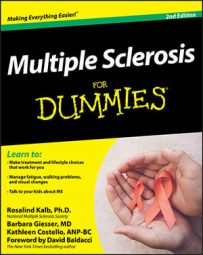Pseudobulbar affect (PBA), which is a complicated name for uncontrollable episodes of laughing or crying, can occur in MS and other neurological conditions. PBA is thought to result from damage in the prefrontal cortex of the brain that interferes with the corticobulbar tracts (which control emotions), and it occurs in about 10 percent of people with MS. It’s generally (but not always) found in those with more progressive disease and significant cognitive changes, and it’s equally common in women and men.
When a person experiences this kind of uncontrolled laughing or crying, he or she cries without feeling sad or upset or laughs without feeling amused or happy. And after it has started, the person can’t voluntarily stop the laughing or crying.
For obvious reasons, this involuntary behavior can be extremely upsetting and embarrassing for the person with MS (and for anyone else who happens to be in the room). Imagine for a moment how it would feel to burst out laughing at your mother-in-law’s funeral or your boss’s retirement party, or to cry in the middle of a business meeting or blind date.
As with other mood issues, remember that uncontrolled laughing or crying isn’t a sign of craziness or stupidity or any of the other labels that may come to mind. And people with this problem are no more likely to be depressed than other people with MS.
The good news is that effective treatments for PBA are available. The FDA approved a medication called Nuedexta (dextromethorphan/quinidine) in 2010 to treat PBA. This medication significantly reduces the number of uncontrollable crying and laughing episodes that people experience, and it appears to be able to stop them completely in some people.
Antidepressant medications, including Elavil (amitriptyline) and Prozac (fluoxetine) have also been used successfully to treat PBA even though people who have PBA aren’t clinically depressed. Sinemet (levodopa), a drug used in Parkinson’s disease, has been used successfully as well. So, if you (or a family member) are experiencing this problem, be sure to consult a physician.

